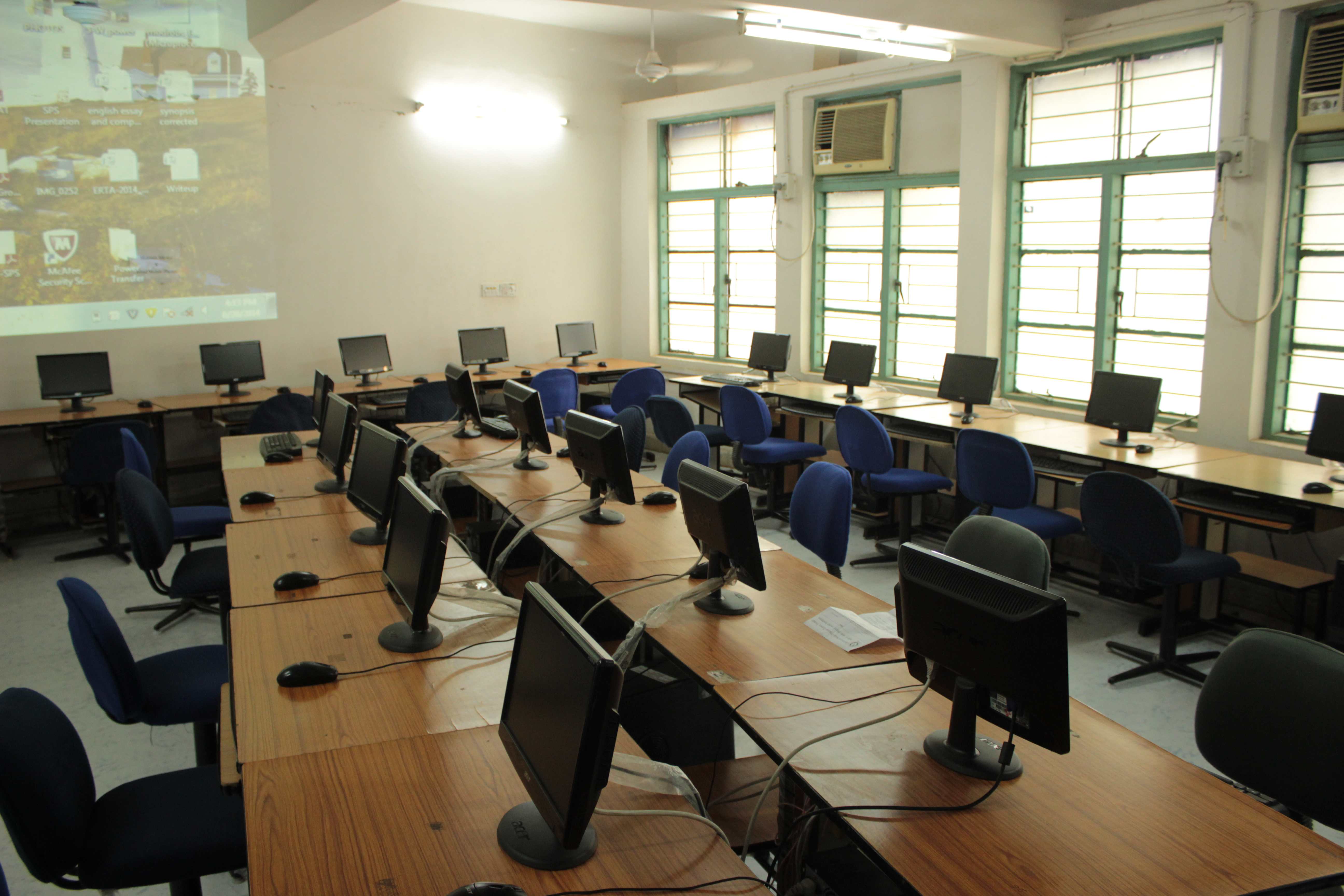Department Contact Info
CSE Artificial Intelligence
Chhatauna, Mandir Hasaud, Sector 1, Raipur, Chhattisgarh 492101 (+91) 93297 73028
(+91) 93297
73026 info@rit.edu.in





CSE Artificial Intelligence Department
Welcome to the cutting-edge world of Computer Science and Engineering with a specialization in Artificial Intelligence. Our department is dedicated to pioneering advancements in AI, shaping the future of technology, and fostering the next generation of innovators.
About Us
Established in the academic year 2024, our Department of CSE Artificial Intelligence offers a 4-year undergraduate program with an annual intake of 60 students. The faculty members of the department have global experience and training. The departmental research is focused in the areas of Artificial Intelligence, Parallel Processing, Software Engineering, Image Processing, and Computer Vision, Medical Image Processing, Pattern Recognition, Data mining and Web mining, Biometrics, Natural Language Processing (NLP), Machine Learning, and Information Extraction. The department has all the facilities to carry out the related teaching and research work. The Department enthusiastically supports and initiatives students to create intellectual communities that extend beyond the classroom, and we encourage students at all levels to take advantage of the programs offered at the global level.
Scope in AI
1. Machine Learning (ML)
- Supervised Learning: Training models on labeled data to make predictions or classifications (e.g., linear regression, decision trees, neural networks).
- Unsupervised Learning: Finding patterns or groupings in data without predefined labels (e.g., clustering, dimensionality reduction). Reinforcement Learning: Training agents to make a sequence of decisions by rewarding desired behaviors and penalizing undesired ones.
2. Deep Learning
- Neural Networks: Models inspired by the human brain, capable of learning from data.
- Convolutional Neural Networks (CNNs): Specialized for image and video processing tasks.
- Recurrent Neural Networks (RNNs) and Long Short-Term Memory (LSTM): Effective for sequence prediction and time-series data.
3. Natural Language Processing (NLP)
- Text Analysis: Techniques for understanding and manipulating human language (e.g., sentiment analysis, topic modeling).
- Machine Translation: Automatically translating text from one language to another.
- Speech Recognition: Converting spoken language into text.
4. Computer Vision
- Image Classification: Identifying objects or features in images.
- Object Detection: Locating and classifying multiple objects within an image.
- Image Generation: Creating new images using techniques like Generative Adversarial Networks (GANs).
5. Robotics
- Autonomous Vehicles: Developing self-driving cars, drones, and robots that can navigate and operate without human intervention.
- Industrial Automation: Using robots to perform repetitive or dangerous tasks in manufacturing and other industries.
- Human-Robot Interaction: Designing robots that can interact with humans in a natural and intuitive manner.
6. AI in Healthcare
- Medical Imaging: Analyzing medical images to assist in diagnosis (e.g., detecting tumors in X-rays or MRIs).
- Predictive Analytics: Using patient data to predict health outcomes and personalize treatments.
- Drug Discovery: Accelerating the discovery of new drugs through AI-based modeling and simulation.
7. AI in Finance
- Algorithmic Trading: Using AI to make high-frequency trading decisions.
- Risk Management: Identifying and mitigating financial risks using predictive models.
- Fraud Detection: Detecting fraudulent activities through pattern recognition.
8. AI in Marketing
- Customer Segmentation: Analyzing customer data to identify distinct segments for targeted marketing.
- Recommendation Systems: Providing personalized product or content recommendations.
- Ad Optimization: Using AI to optimize ad placements and targeting.
9. AI in Education
- Personalized Learning: Adapting educational content and methods to individual student needs.
- Intelligent Tutoring Systems: Providing automated tutoring assistance.
- Administrative Automation: Streamlining administrative tasks such as grading and scheduling.
10. Ethical AI and AI Governance
- Fairness and Bias Mitigation: Ensuring AI systems are fair and unbiased.
- Privacy Preservation: Developing AI that respects user privacy and complies with data protection regulations.
- AI Policy and Regulation: Shaping policies and regulations for the ethical use of AI.
11. AI in Entertainment
- Game AI: Creating intelligent behavior in video games.
- Content Creation: Using AI to generate music, art, and stories.
- Virtual Assistants: Developing AI-powered virtual characters for interactive experiences.
12. AI in Customer Service
- Chatbots: Automating customer service interactions.
- Sentiment Analysis: Analyzing customer feedback to improve service quality.
- Voice Assistants: Providing assistance through voice-activated interfaces.
13. AI in Agriculture
- Precision Farming: Using AI to optimize farming practices, such as planting, watering, and harvesting.
- Crop Monitoring: Analyzing satellite or drone images to monitor crop health.
- Supply Chain Optimization: Improving the efficiency of agricultural supply chains.
14. AI in Smart Cities
- Traffic Management: Optimizing traffic flow and reducing congestion through AI-based systems.
- Energy Management: Enhancing the efficiency of energy usage and distribution.
- Public Safety: Using AI to enhance security and emergency response systems.
15. AI in Climate Science
- Climate Modeling: Using AI to improve climate models and predictions.
- Environmental Monitoring: Analyzing data from sensors and satellites to monitor environmental changes.
- Sustainable Practices: Developing AI solutions for sustainable resource management.
Career Opportunities:
- 1. AI Research Scientist
- 2. Machine Learning Engineer
- 3. Data Scientist
- 4. AI Software Engineer
- 5. Natural Language Processing (NLP) Engineer
- 6. Computer Vision Engineer
- 7. Robotics Engineer
- 8. AI Product Manager
VISION
To be among the best programs in Artificial Intelligence , generating Software & IT Professionals, along with various skills like proper attitude, Techincal skills, Knowledge, ethics and to become a renowned center for the genesis of creative ideas and solutions.
MISSION
- To provide distinctive and relevant education within scientific and professional environment.
- To develop curricula that are holistic, flexible and dynamic in design so as to nurture heightened cognitive abilities leading to creativity and innovation.
- To dispense quality knowledge and practical skills, to achieve excellence in education and create technologically competent manpower for the global institutions.
- To give impetus to creative minds to transform society through innovation, design and to build entrepreneurship, leadership and to facilitate concerted action.
PROGRAM OUTCOMES (POs)
Engineering Graduates will be able to:
- 1. Engineering knowledge: Apply the knowledge of mathematics, science, engineering fundamentals and an engineering specialization to the solution engineering problems.
- 2. Problem analysis: Identify , formulate,review research literature and analyze complex engineering problem reaching substantiated conclusion using first principles of mathematics , natural science and engineering sciences.
- 3. Design/Development of solutions:Design solutions for complex engineering problems and design system components or processes that meet the specified needs with appropriate consideration for the public health and safety and the cultural,society and environmental considerations.
- 4. Conduct investigations of complex problems: Use research-based knowledge and research methods including design of experiments, analysis and interpretation of data and synthesis of the information to provide valid conclusions.
- 5. Modern tool usage: Create, select and apply appropriate techniques, resources and modern engineering and IT tools including prediction and modeling to complex engineering activities with an understanding of the limitations.
- 6. The engineer and society: Apply reasoning informed by the contextual knowledge to assess societal, health, safety, legal and cultural issues and the consequent responsibilities relevant to the professional engineering practice.
- 7. Environment and sustainability: Understand the impact of the professional engineering solutions in societal environmental contexts and demonstrate the knowledge of and need for sustainable development.
- 8. Ethics: Apply ethical principles and commit to professional ethics and responsibility and norms of the engineering practice.
- 9. Individual and team work: Function effectively as an individual and as a member or leaded in diverse teams and in multidisciplinary setting.
- 10. Communication: Communicate effectively on complex engineering activities with the engineering community and with society at large such as being able to comprehend and write effective reports and design documentation make effective presentation and give and receive clear instructions.
- 11. Project management and finance: Demonstrate knowledge and understanding of the engineering and management principles and apply these to one's own work as amember and leader in a team to manage projects and multidisciplinary environments.
- 12. Life- long learning: Recognize the need for and have the preparation and ability to engage in independent and life-long learning in the broadest context of technological change.
PROGRAMME SPECIFIC OUTCOMES (PSOs)
After completion of this programme students will be able to attain.
- PSO 1: Demonstrate basic knowledge of computer applications and apply standardized practices to software project development.
- PSO 2: Apply the fundamental knowledge of computer science, analyze the real time problems and provide the computer based solutions.
- PSO 3: Design effective systems and models for real time applications using the data structure, programming languages, machine learning, artificial intelligence models and networks.
PROGRAMME EDUCATIONAL OBJECTIVES (PEOs)
- PEO 1: To be able to understand and analyze computer science and engineering problems and relate them to real life.
- PEO 2: To impart in-depth knowledge of computer science and engineering to meet industrial needs, undertake and excel in graduate studies and innovation in related areas of engineering.
- PEO 3: Promote collaborative learning and teamwork through multidisciplinary projects and a diverse professional ethics with an inclination for higher studies and research.
- PEO 4: To inculcate a conviction to believe in self, impart professional and ethical attitude and nurture to be an effective team member, infuse leadership qualities, and build proficiency in soft skills and the abilities to relate engineering with the social, political and technical issues.
Engineering at RITEE USP's
- First & Only Engineering College in Chhattisgarh accredited with Grade A+ by NAAC
- Experienced faculties
- Exceptional Laboratory Setup
- Huge collection of books in Library
- 7 Specialization in M.Tech
- 5 Research Centres for Ph.D
- Only Engineering college in India to have a commercial Bio Diesel plant within the campus
- Only Institute in Central India to have a BARC Centre
- First Engineering college of state to adopt Solar Power
- Many research work in progress
- Entrepreneur Development Cell – The story of Suraj Kumar
- Training Program
- Industrial Relation
- Amazing Placement record with highest package of 12 L per annum
- Campus placement of companies like Samsung, LG Soft, Shapoorji Pallonji, Byju’s
- About 45 companies visit every year
